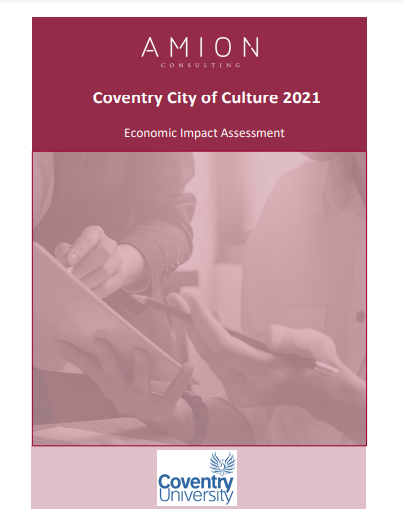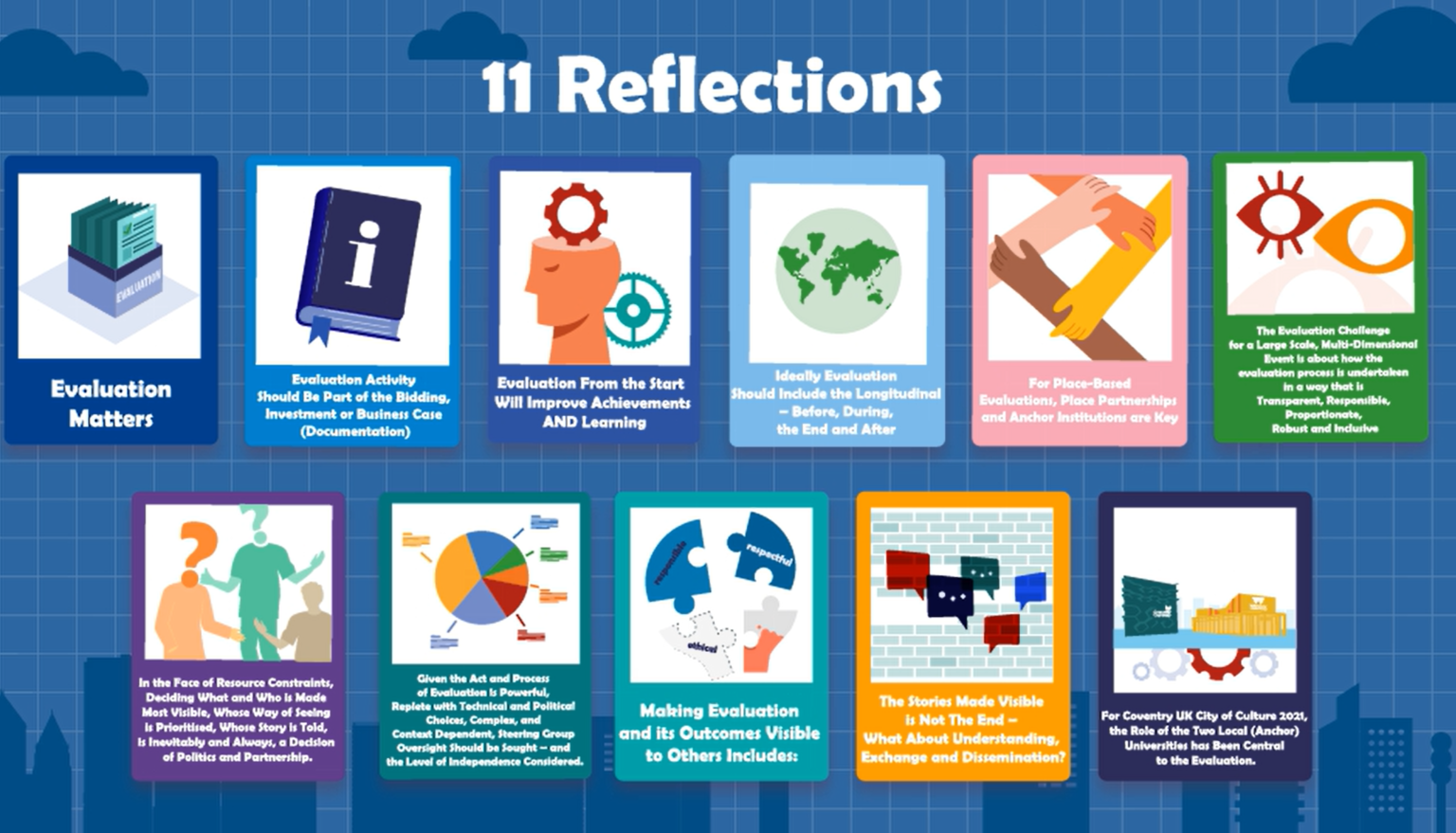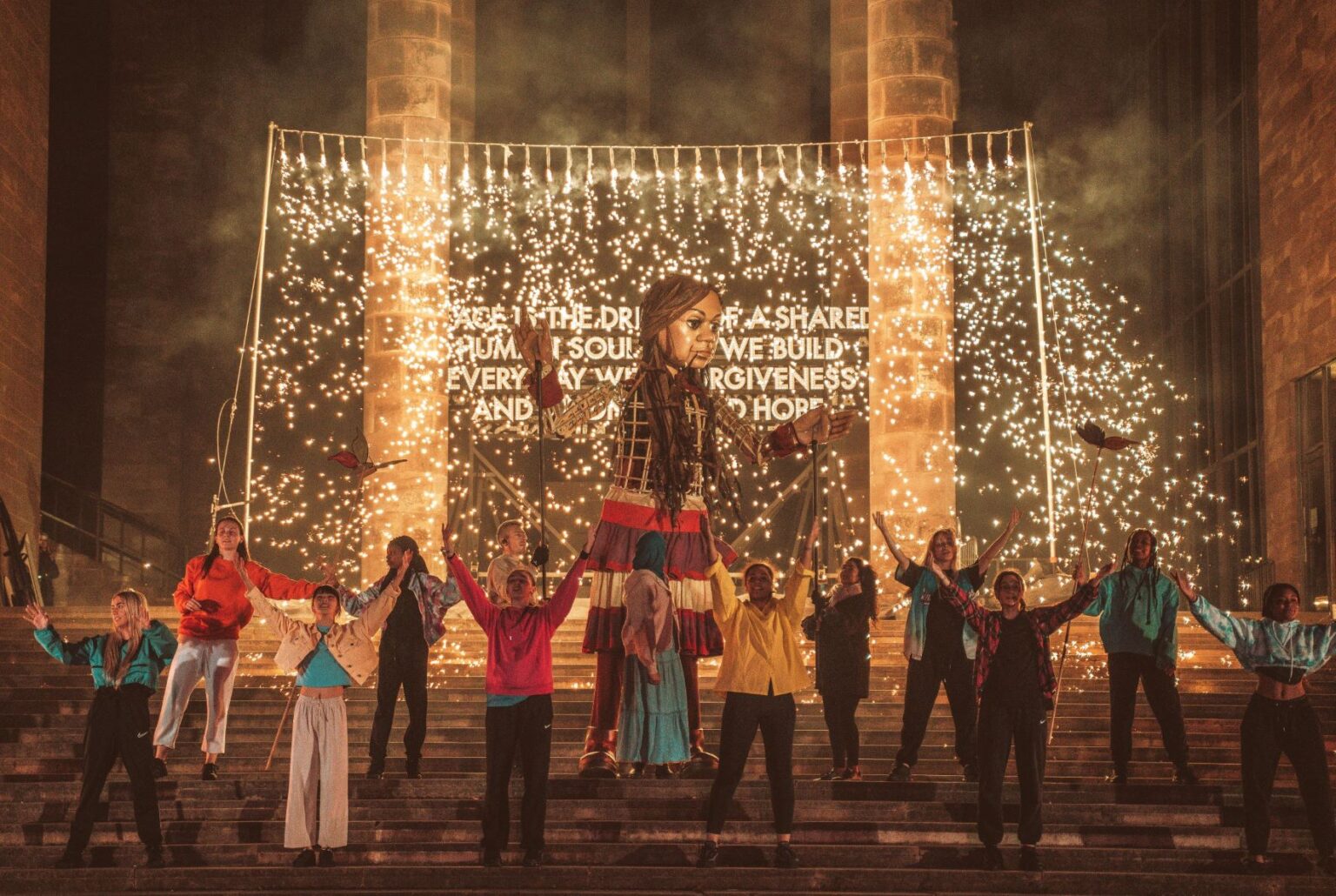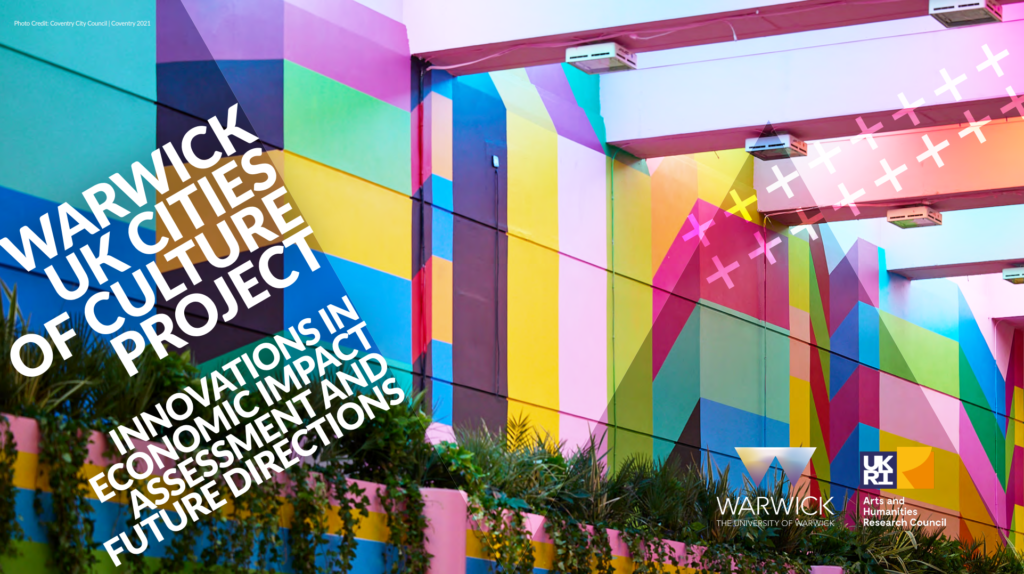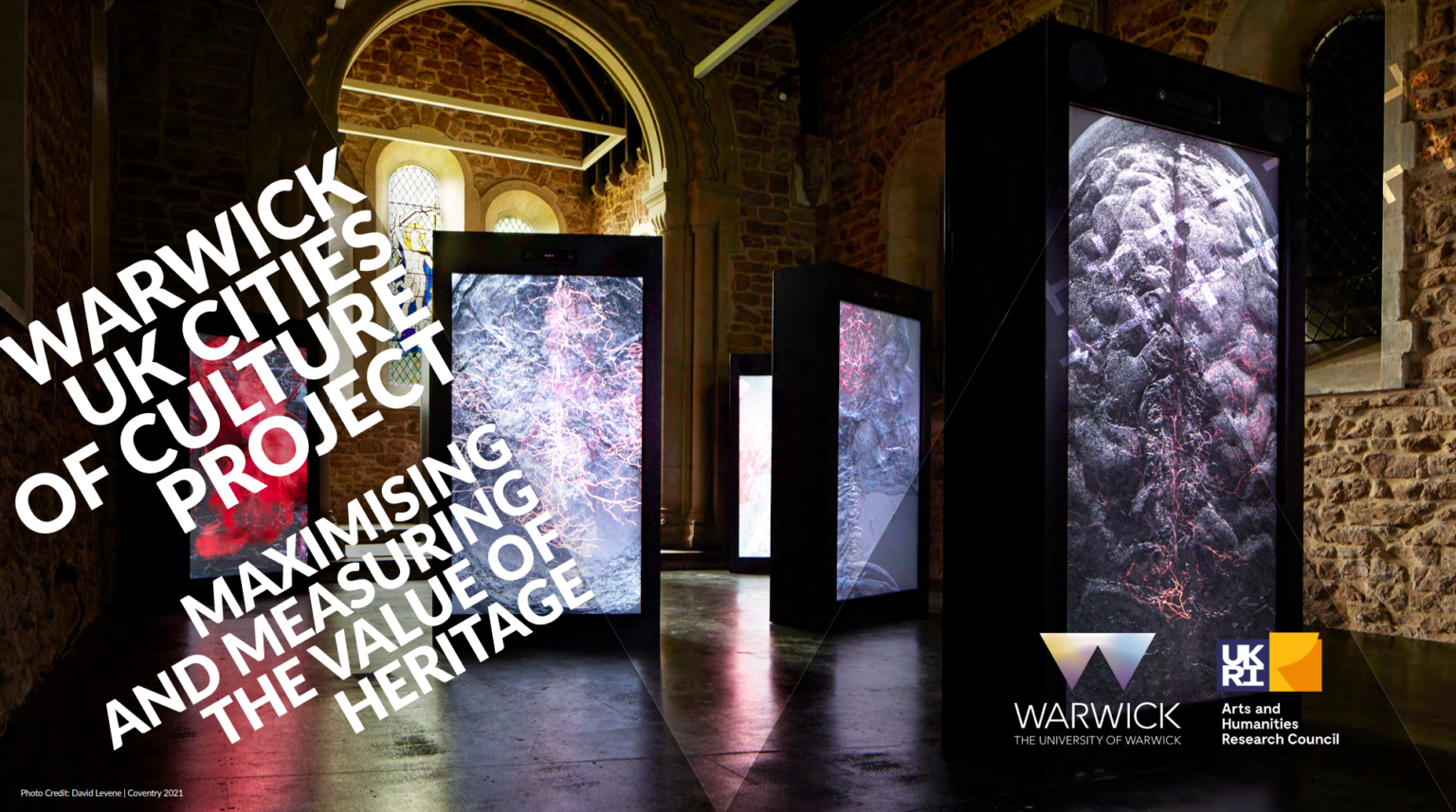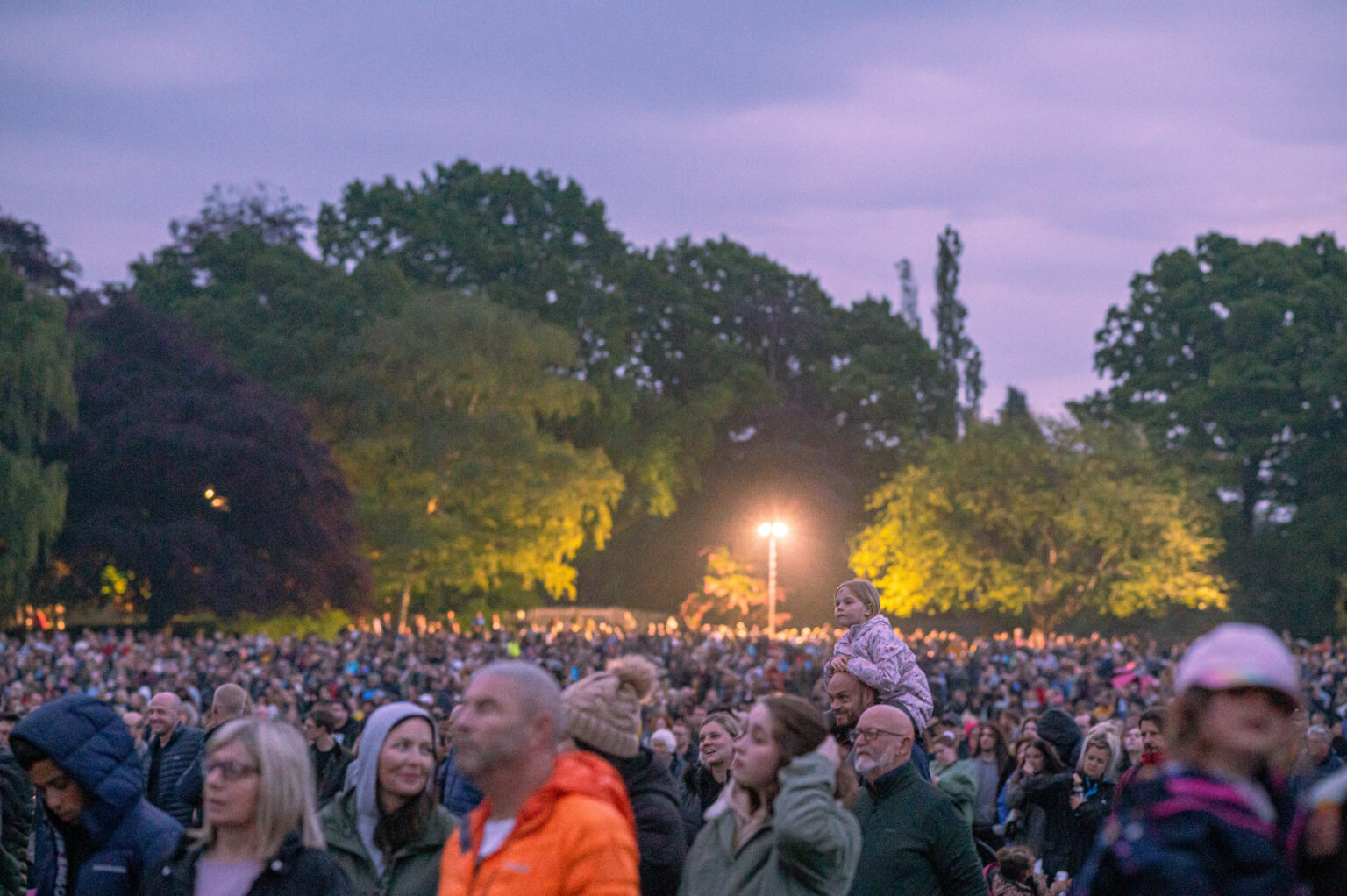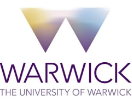Prior to the commencement of the programme, it is estimated that £183.1 million (current prices) of related investment was secured, in part, due to the award of the UK CoC 2021 title.
Further economic impacts of the programme (at 2023/4 prices) include:
- £20.9 million net additional off-site and organisational expenditure in Coventry and Warwickshire
- 225 one-year net additional full time equivalent (FTE) jobs from off-site visitor and organisational expenditure in Coventry and Warwickshire
- £11.6 million net additional GVA arising from this expenditure in Coventry and Warwickshire.
The award of UK CoC 2021 also provided a boost to a range of other wider regeneration projects within the city. In total schemes with an investment value of more than £1 billion are either now complete, underway or proposed.
Investments and Economic Impacts
Investment and economic impacts can be seen through a number of outcomes:
- The number of Coventry organisations in the Arts Council England National Portfolio increased from five in the 2018–2022/3 portfolio to nine in the 2023–2026 portfolio. This represents a 79% increase in funding.
- The DCMS awarded Coventry City Council £8.5 million for capital projects, which supported heritage assets.
- Public realm improvements in the city centre led to 63% of citizens agreeing that the changes to Coventry city centre have made it more fun and enjoyable to visit.
- Cultural and heritage assets such as Charterhouse, the Daimler Powerhouse, the Belgrade Theatre, and Warwick Arts Centre have been strengthened following refurbishment or renovation.
- Recent tourism and visitor data suggest that Coventry is recovering well following the Covid-19 pandemic. Analysis of STEAM data demonstrates that 2022 was a record year for the city, with visitor figures surpassing the pre-Covid 2019 baseline.
- The economic impact of tourism in Coventry was £594.36 million in 2019 and declined heavily, as elsewhere, due to Covid-19. In 2022, Coventry experienced a strong recovery with the economic impact of tourism reaching £750.86 million (£156.5 million higher than 2019).
Value for Money
Despite the substantial and significant impacts of Covid-19, UK CoC 2021 attained a monetised Benefit-Cost Ratio (BCR) of 1.0:1 at the national level and 1.1:1 at the local level. There were also significant non-monetised benefits which mean that the programme was classified to represent acceptable value for money.



